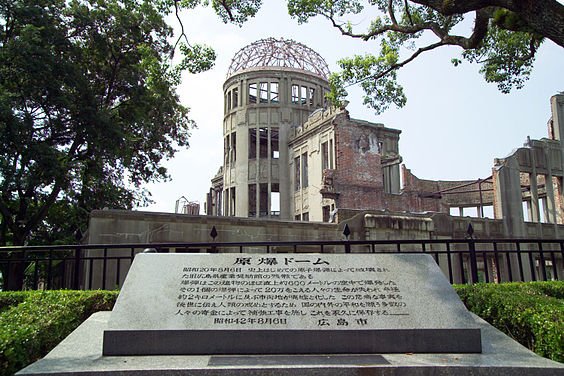The Sacramento Bee has featured a number of articles this month commemorating the 70-year anniversary of the bombing of Hiroshima. On August 6, 1945, the American B-52 bomber Enola Gay dropped the world’s first atomic bomb. “The Hiroshima bombing and its aftermath ultimately claimed about 140,000 lives, helping to draw to a close the deadliest conflict in history and, for better or worse, usher in the atomic age.” Philip Marcelo via SacBee
Image from Wikimedia Commons – Public Domain
A second SacBee article shares how, 70 years later, Japan continues to commemorate the impact of the bombing. Koari Hitomi and Mari Yamaguchi’s article includes a short video interview from Hiroshima with a Japanese women who survived the bombing.
But what if you were a Japanese-American (a U.S. citizen) who happened to visit a grandparent shortly before the outbreak of World War II, and, consequently, were forced to remain in Japan throughout the war, living only a few miles from Hiroshima? What would that experience of daily crossing the line between two nations and cultures be like for a child? Thanks to our Time of Remembrance Oral Histories Project, you can listen to a first-hand account from Jack Dairiki. Here is a link to the annotated version of the interview.
We agree with U.S. Undersecretary of State for Arms Control and International Security Rose Gottemoeller’s statements at the August 6 Hiroshima Memorial regarding the importance of survivors telling their stories “to help the world understand the consequences of nuclear weapons” and that “those stories must be passed on to future generations and the world must continue nonproliferation efforts.”
Hiroshima Peace Memorial – Image from Wikimedia Commons, released into the Public Domain by Fg2
SacBee Sources:




